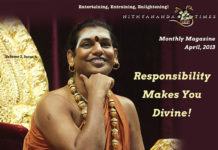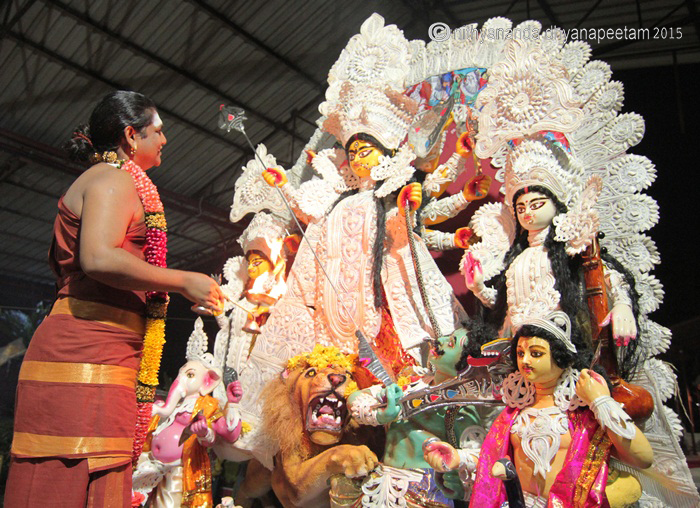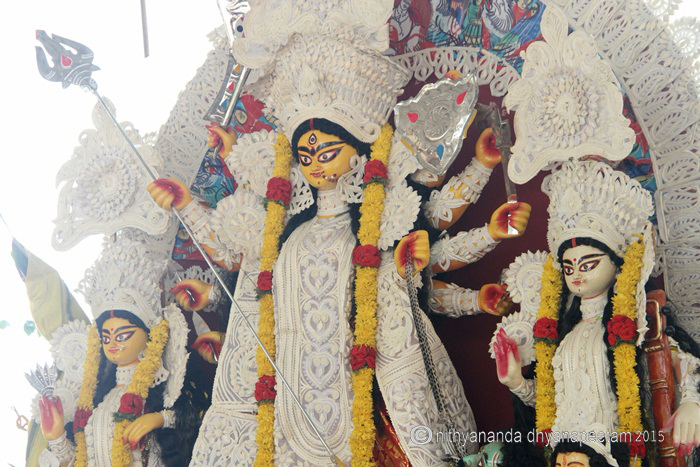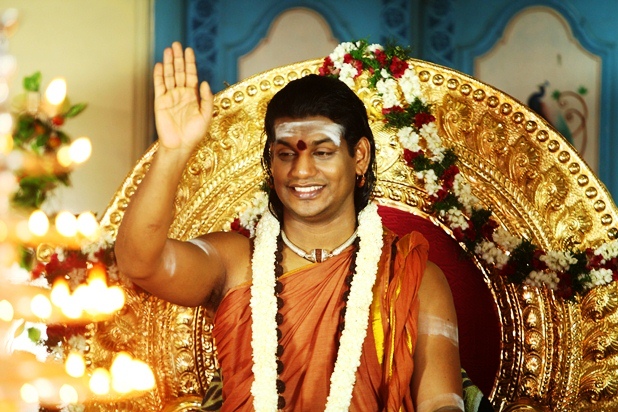The Ramayana
Ramayana is one of the most told and celebrated epics in the Vedic tradition. Dasharatha, the king of Ayodhya, had three wives and four sons. Lord Ram (an Incarnation of Lord Vishnu) was the eldest and the son of Kaushalya. Bharat was the son of his second and favorite wife, Kaikeyi. The other two sons were Lakshman and Shatrughna, sons of Sumithra. While Ram was all set for coronation, his step-mother Kaikeyi wanted her son Bharat to become the king. Kaikeyi reminded King Dashratha about the two boons he had granted her once and was yet to fulfill. Consequently, because Kaikeyi desired so, instead of being crowned as king of Ayodhya, Ram was sent to exile in the forest for fourteen years.
Lord Ram went to the forest, accompanied by his wife Sita and brother Lakshman, and they lived as renunciates. One day Lord Ram, Lakshman and Sita were sitting on a huge rock and enjoying the beautiful scenery, when they saw Bharat approaching their hut with the entire army of his kingdom.
As soon as Bharat saw Lord Ram, he embraced him and said: “Ram, our father died soon after your departure. On his deathbed he had only your name on his lips. Please forgive me. It is only because of my cruel mother that you have come to the forest in exile and we have lost our father.”
Lord Ram, Lakshman and Sita were lost in grief when Bharat conveyed the news of King Dasharatha’s death to them. Lord Ram said to Bharat: “We will carry out the remaining rituals here. You must return to Ayodhya and rule over the kingdom. It is the only way of satisfying our father’s soul.” Lord Ram wished to continue to live in exile to fulfil the promise made by him to his late father. But Bharat was firm to his resolve as well. He insisted that he will instead fast to death, and won’t go back to Ayodhya without taking Lord Ram back with him.
Enter King Janaka
King Janaka, whose four daughters were married to the four sons of King Dashratha, arrived at the scene to resolve the deadlock. King Janaka said: “Ram, your resolute adherence to dharma (the principle of cosmic order) is such that even Gods bow before you. But love is the only divine ethic that no dharma can ever compel. Steadfast unselfish love is above dharma. When that love reaches its pinnacle in the form of true devotion then God himself needs to break his own laws. That is why now scales are heavy in Bharat’s favour. But remember Bharat, love has its own rules, it makes its own laws. Love’s true power lies in its being selfless. And when love is selfless it asks for nothing. It just wants to give to the beloved for the sake of their happiness and pleasure. And so you now decide what you can give to your Ram. It is easy to give up life, but it is often hard to live for your loved one. If you are a true devotee, sit at Ram’s feet and ask him what he desires”.
Bharat’s Realization
Bharat realized that his judgement was overshadowed by a veil of subtle selfishness. He was only thinking about his love and his glory and misinterpreted it as selfless love. He thanked King Janaka for enlightening him on the essence of true love. Ram, feeling vanquished by the power of Bharat’s love, accepted being the king of Ayodhya but only after fulfilling the promise made by him to his father.
With his newly gained clarity Bharat said “Dear Ram, at least do this for me. Let me have your paadukas (sandals). I shall place them on the throne and administer the kingdom on your behalf and that too only till your return after fourteen years and not a day more.” Bharat took Ram’s paadukas. With great devotion he placed them on his head and returned to Ayodhya. The divine paadukas were kept on the throne of Ayodhya while Bharat ruled as Ram’s representative from Nandigram. Ram lived a life of exile for fourteen years with Sita and brother Lakshman.
So much is said about unconditional love, yet often one tends to miss the essence of selflessness. It is important to understand the other person’s needs and happiness instead of only thinking about one’s own wants – to be aware whether one is actually contributing to other person’s life or just burdening them with some ideas of love. Approaching others with an attitude of contributing to their life makes true love flower in one’s inner space and liberates one from his own attention need as well. n



















